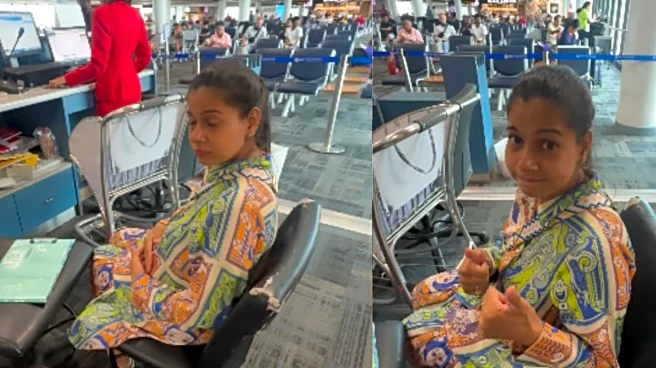
The cultural heartbeat of Assam fell silent on September 19, 2025, as the news of Zubeen Garg's untimely demise in Singapore shook the nation. The legendary singer, whose voice had become synonymous with
Assamese identity, passed away in a tragic drowning incident, leaving behind an irreplaceable void in India’s musical landscape.In the last 48 hours, Zubeen's name has dominated online searches worldwide, with fans seeking details of his death, funeral arrangements, and paying tribute to the icon who gave them so much joy.Assam bid farewell to its beloved son in a way befitting his stature. Lakhs of admirers thronged the streets of Guwahati to catch one last glimpse, bringing the city to a standstill. The gathering has now been recorded in the Limca Book of Records as the fourth-largest funeral congregation globally, after those of Michael Jackson, Pope Francis, and Queen Elizabeth II a testament to the profound impact he had on people’s hearts.Born in 1972 in Tura, Meghalaya, as Jibon Borthakur, Zubeen hailed from a family where art was not just a passion but a way of life. His father, Mohini Mohon Borthakur, a magistrate, was also a poet and songwriter, while his mother, Late Ily Borthakur, was a gifted singer. Music ran in the family his younger sister, Jonkey Borthakur, had carved a niche as a singer and actress before her untimely death in 2002. That same year, Zubeen released his album "Xixhu", dedicating it to her memory a mark of the deep love and loss that shaped his life.The name "Zubeen" reflected his parents' admiration for maestro Zubin Mehta, a symbol of global artistry and excellence. Later, he adopted the surname "Garg", rooted in his Brahmin ancestry, crafting an identity that was both deeply personal and instantly memorable.Zubeen's rise to fame began with his iconic Assamese album "Anamika" in the early 1990s. Bollywood soon followed, with the chartbuster Ya Ali from Gangster (2006) making him a household name across India. Singing in multiple languages, Zubeen remained a pan-Indian artist while staying proudly rooted in Assamese culture.Offstage, Zubeen was as complex as his music outspoken, bohemian, and deeply passionate about football, films, and social causes. Married to Garima Saikia Garg, he often credited her for grounding his whirlwind life. Beyond his songs, Zubeen’s voice became that of his people a voice for love, rebellion, justice, and the dreams of Assam’s youth.On that fateful day in Singapore, the world lost more than a singer it lost a legend. In Guwahati, as the funeral proceeded with state honours, fans held placards, sang his songs, and wept openly. From Jibon Borthakur’s tender beginnings to Zubeen Garg’s immortal legacy, his journey reminds us of that music, when blended with passion and purpose, transcends time.Zubeen Garg will forever remain the heartbeat of Assam, a superstar of the people, and a symbol of the enduring power of song.
/images/ppid_a911dc6a-image-175853082489336194.webp)











